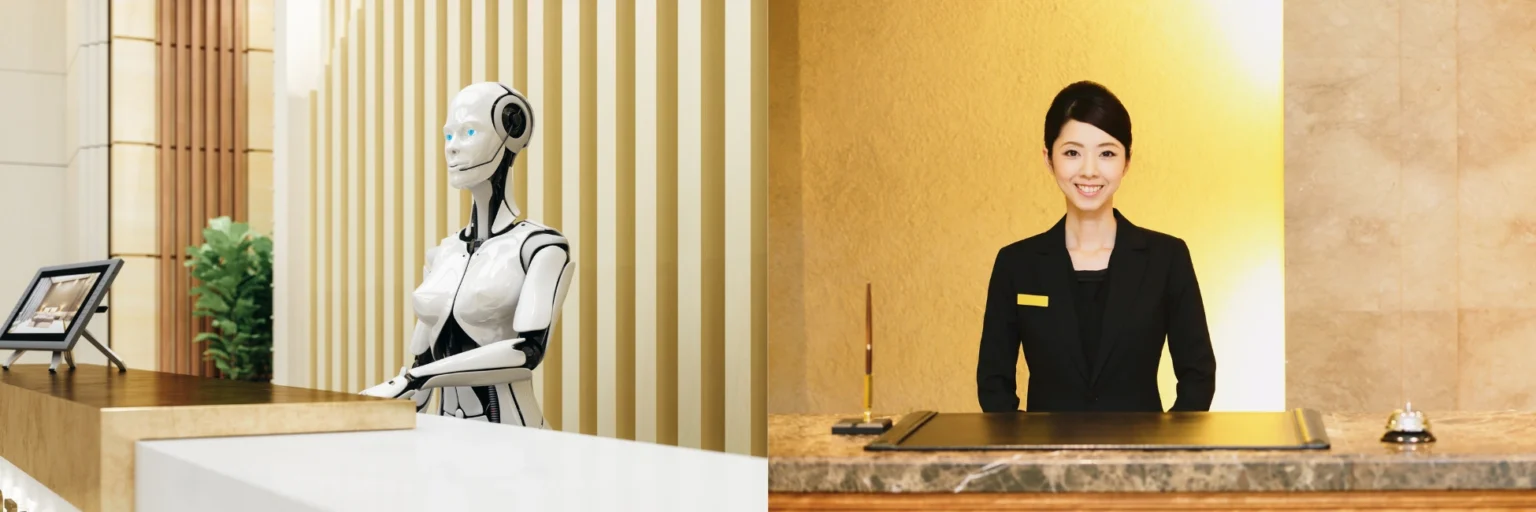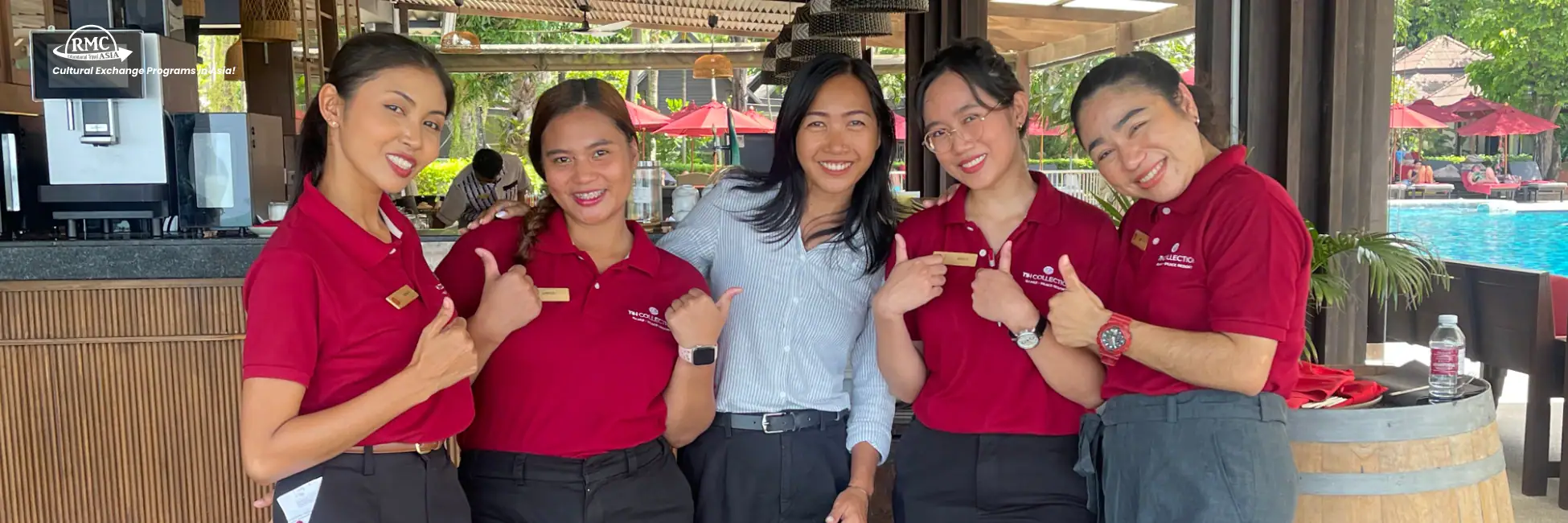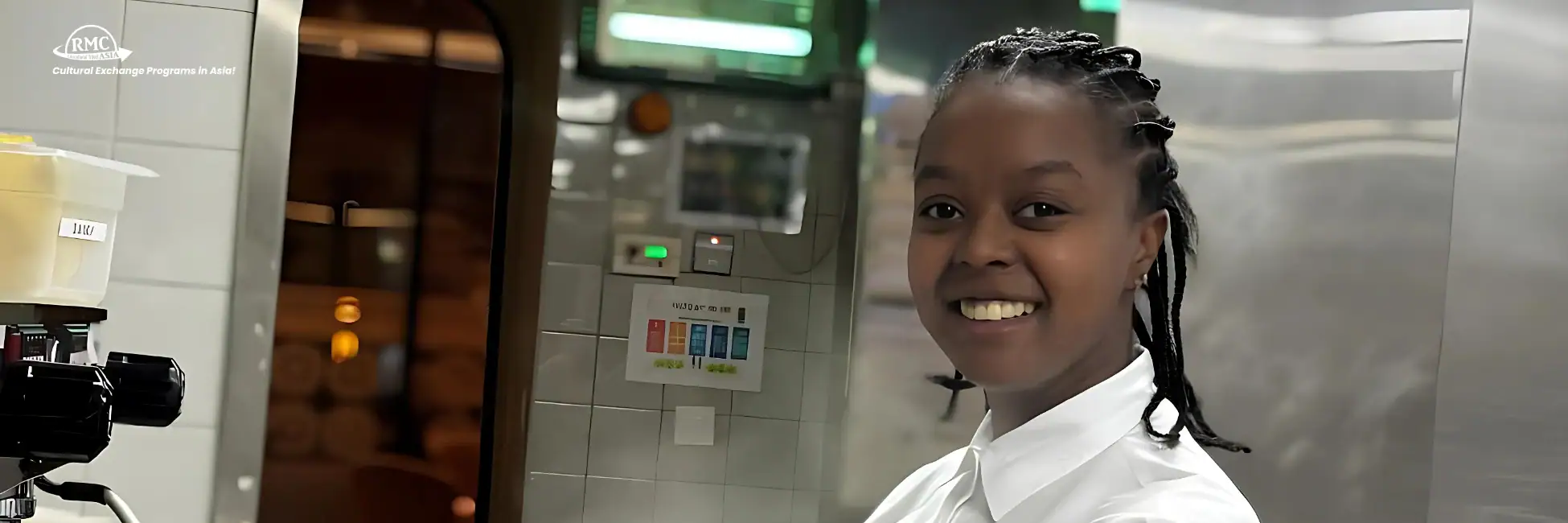Warmth, sweet, empathetic service, and sincere smiles are the hallmarks of the hospitality industry 😊.However, as we have seen recently, technological developments have become an inevitable and inseparable part of the industry. With the advent of AI-powered chatbots, automated check-in systems, and housekeeping robots, the hotel and resort industry is undergoing rapid change.
Naturally, this begs the important question: Should hospitality professionals be worried about Artificial Intelligence (AI) as a danger or as a significant potential for advancement, particularly for young people just starting out in the industry?
🤖 AI: Increasing Efficiency in the Background
To be honest, we cannot dispute that AI has sped up and simplified a lot of operations. Numerous global hotel and resort chains have started using chatbots, which are available around the clock to respond to inquiries from visitors. These chatbots may even suggest the best nearby eateries and provide more towels when needed. Radisson Blu Edwardian, for example, has launched Edward, a chatbot that instantly serves all guests’ needs.
Hotel operations have also been designed to be fully automated, with self-service check-in kiosks being widely adopted to reduce lobby queues, AI systems that can predict peak tourist seasons and automatically schedule staff, and even the much-discussed housekeeping robots that can speed up room cleaning and deliver guest requests directly to rooms.
Hotel administration is also changing behind the scenes, especially with regard to hiring. In the modern era, HR departments no longer manually review resumes and job applications; instead, they are automatically filtered and immediately scheduled for interviews. HR teams benefit greatly from this, which frees them up to concentrate more on staff development.
But even with all the comforts available, can efficiency take the place of hospitality?
💡 The Importance of Human Touch
A memorable experience is key in hospitality, so it’s not only about fast service. AI can guess what people like, but it doesn’t understand feelings and can’t show empathy. A chatbot alone can’t comfort a guest who might be having a bad day or feeling sad or disappointed, but a human receptionist can.
For example, Henn na Hotel in Japan once used a humanoid robot as a receptionist to handle check-ins, which reduced staff by nearly 32 people. However, many guests have since said they still miss interacting with humans. This shows that a balance is still necessary.
In addition, a restaurant called WOHOO has introduced an AI named “Chef Aiman” that is tasked with creating menus based on spice and flavor science. From there, human chefs then refine the results. This is a real example of collaboration, not a cause for concern about chefs being replaced.
This is what makes the role of humans vital. On the positive side, in this era of robots and AI, it can be a great opportunity for new talents to learn and focus on:
- Hone problem-solving and creativity skills
- Build strong guest relationships
- Develop cross-cultural and interpersonal skills
So now it’s no longer just about soft skills, but about preparing for a future career in the modern hospitality industry.
🌍 How RMC Asia’s Program Stands Out in the AI Era
The demand for adaptive, tech-savvy, globally-minded skills and more is growing as a result of these developments, and all of this is expected to come from young talent. More and more hotels and resorts are looking to expand their teams, open new positions and opportunities, and seek young professionals who can balance and combine technology with a true touch of hospitality.
This is where RMC Asia’s Cultural Exchange Program offers a great opportunity ✨. We work with several top hotels and resorts in Asia and the Middle East. Participants gain international work experience while taking part in meaningful cultural exchange. By working with colleagues and welcoming guests from around the world, they develop modern industry skills and, at the same time, keep the warmth and personal touch that define true hospitality.
The result? Our program participants become resilient, competitive individuals ready to compete and thrive in the future, which is precisely what the industry needs in this era.
✅ So, Is AI a Threat or an Opportunity?
The answer: a massive opportunity, if embraced thoughtfully.
For students, fresh graduates, or young professionals, this is the moment to master technology while keeping the human touch alive. Explore RMC Asia’s Cultural Exchange Programs and start your journey today!
If you’re interested in exploring similar trends, don’t miss RMC Asia’s previous article on “The Future of Luxury Hospitality: Trends You Should Know in 2025”. There, you’ll find fresh insights into how this industry continues to evolve.





